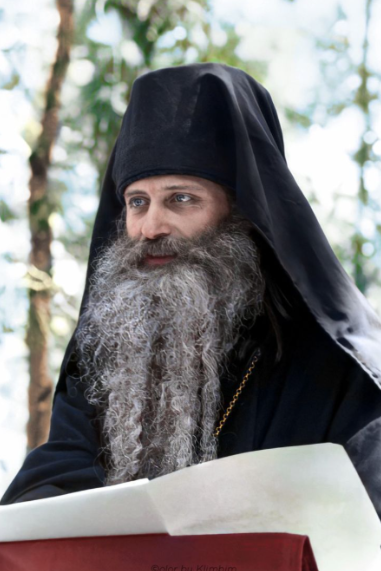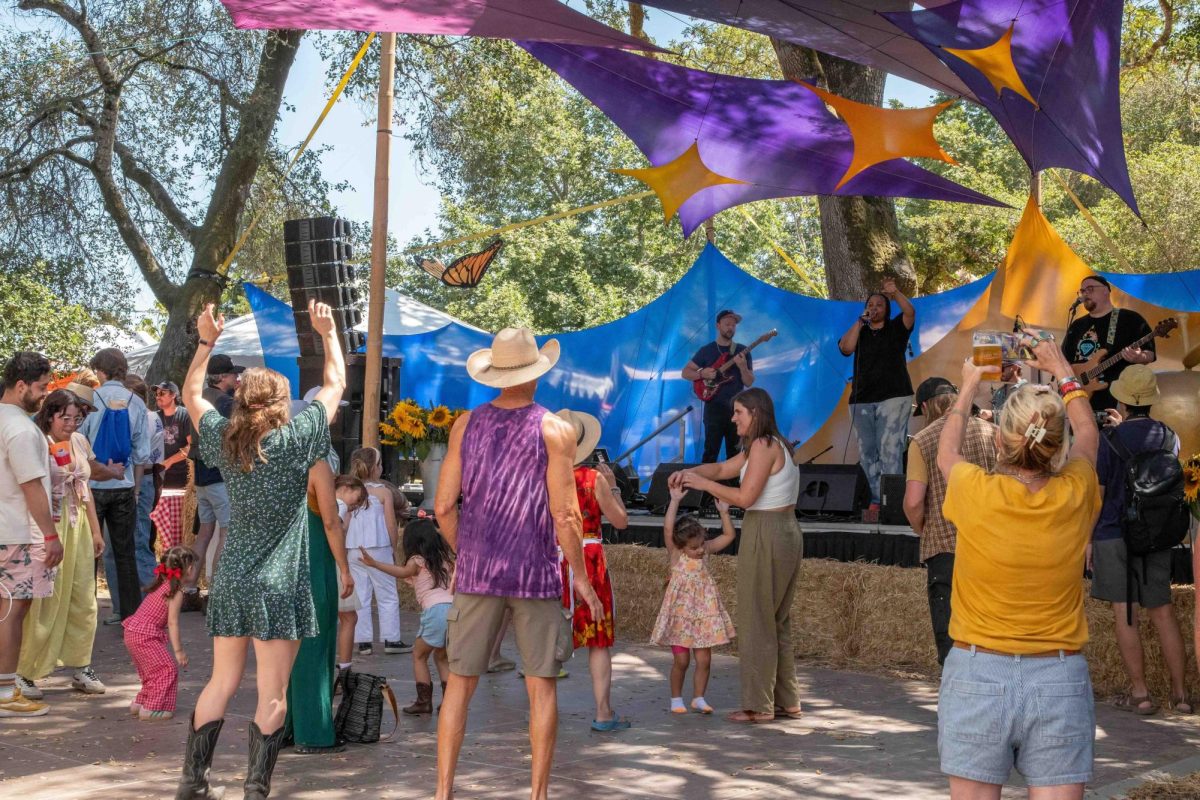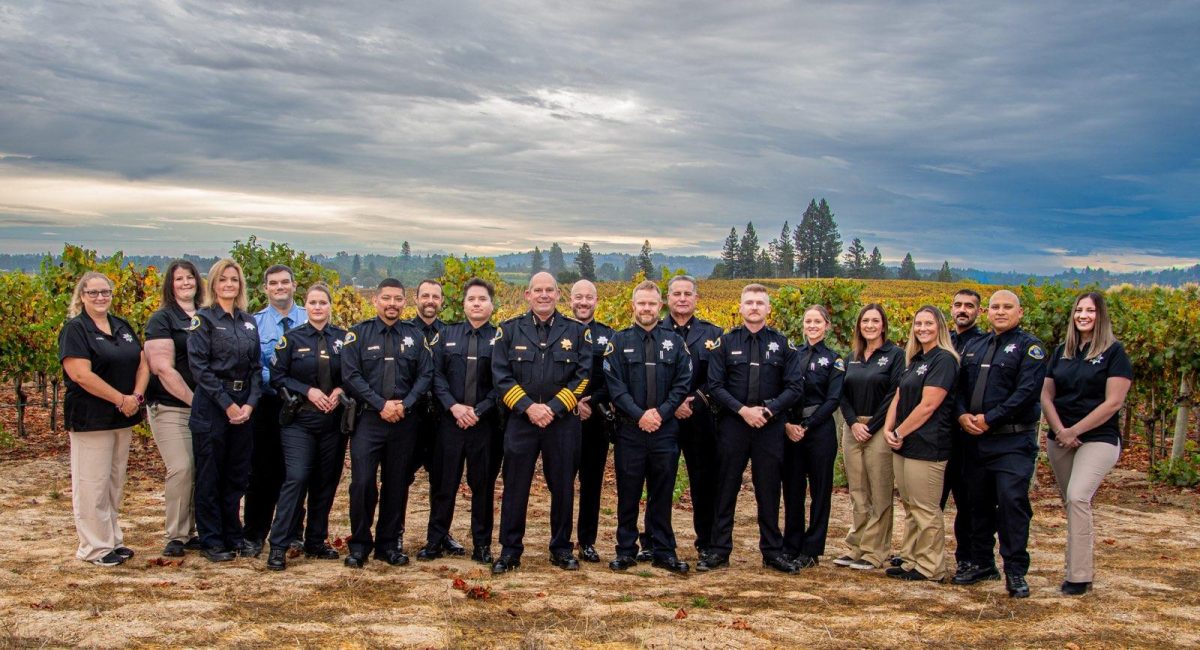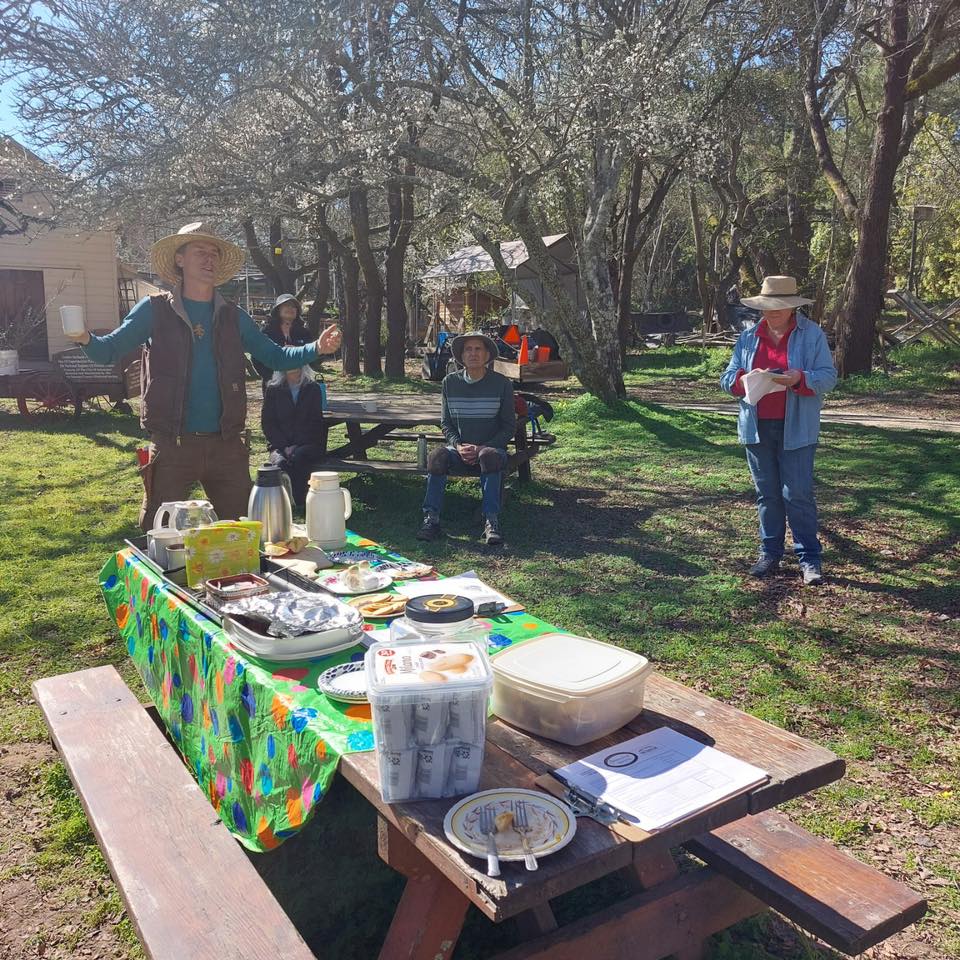On September 15, I interviewed Orthodox monk Fr. Damascene, Abbot of St. Herman of Alaska Monastery, which is located in Platina, west of Redding.
Orthodox Christianity is an ancient expression of the Christian faith, known for its emphasis on tradition, liturgical worship, and spiritual transformation. A part of its long and unique traditions is monasticism, where people leave ordinary life to live in prayerful communities devoted to God. While monastic life is uncommon in modern American culture, it remains central within Orthodox Christianity. In our conversation, we discussed Fr. Damascene’s journey into Orthodoxy, the monastic life, and the challenges of faith in the modern world.
His Journey to Christianity
Fr. Damascene first heard the Gospel message of Jesus at summer camp when he was 11, but during his high school years, he explored Zen Buddhism. “From Zen meditation,” he says, “I found that it was possible to restrain the mind from running wild with thoughts. I felt a certain freedom from that. But as I finished my senior year of high school, I was left empty. While the churches I had experienced in my younger days seemed
Continuing his search in college, he explored Roman Catholicism. One student, hoping to convert him to Catholicism, gave him Orthodox books, which Fr. Damascene found to be profound, moving, and unlike books he had read previously. “I really wanted to find the truth,” he says. According to him, many people today feel the same spiritual hunger he once did.
For him, the next step in his spiritual search occurred the first time he attended an Orthodox church service.
“It was night, the lights were out, oil lamps were flickering, and candles were burning. It was the first week of Great Lent, and the ancient service, written in the 8th century A.D., was entirely in the key of repentance. With each stanza of the service, people would make the sign of the cross, bow, and sing in a solemn tone ‘Have mercy on me, O God, have mercy on me.’ This blew me away because the form of Christian worship I had experienced up to then seemed more about helping people to feel good; in other words, it felt more man-made. But this Orthodox worship was different. It was long, and as the faithful continued to bow and intone the hymns, they were comparing themselves to the Bible’s worst sinners.”
Fr. Damascene wondered, “Why would people do such a thing?”
The answer? “They were humbling themselves before God and repenting of their sinful condition. This form of Christianity, even though a human being wrote the service, was something otherworldly. I felt that it had come from above.”
Still, Fr. Damascene struggled to abandon the idea of an impersonal God that Zen had taught him: “Zen I had formed this idea that people who believe in a personal God were just projecting their own egos onto God.”
Meeting Father Seraphim Rose
Everything changed when an Orthodox student group on campus invited monk Seraphim Rose to speak: “I was struck by him; he had this really long beard, but that wasn’t the main thing. I had a sense that he was the wisest man I had ever met, and one who had set aside all pride.

“In the question and answer session following his first lecture, I asked him, ‘Where does the idea of an impersonal God come from?’ Fr. Seraphim explained that people avoid a personal God because ‘they know He definitely requires something of you. Through meditation, people can quiet themselves down until they find what they think is God. But if they have a burning desire to find the truth, they will break free and find the true God.’
“Years later, in researching Fr. Seraphim’s life, I found a pivotal passage in which he described his own conversion to the Orthodox faith: ‘I was looking for the truth in philosophy through my intellect. But gradually, as my experience of the Orthodox faith and Orthodox Christians grew, I came to understand that the truth is not an idea or a philosophy known by the mind. Rather, the truth is a Person known and loved by the heart. And that is how I met Jesus Christ.’”
His Monastic Calling
After Fr. Seraphim’s death, Fr. Damascene entered the monastery.
“I remember pondering, should I go back to college? I prayed about it, and I had the realization that God didn’t want me to be anywhere else. I believe God often shows His will by opening some doors and closing others. The door He wanted me to go through became clear with time.”
Running the Monastery
Now Fr. Damascene is the abbot of Fr. Seraphim’s Monastery. He explained his role as the abbot, noting that “the abbot is the spiritual leader of the monastery. That’s the first purpose. There are other leaders who take different responsibilities, but the abbot, above all, is involved with the spiritual life of the people of the monastery–both monastics and pilgrims. He’s there to help people who go to him for counsel, and to set an example for the monastery.”
The Purpose of Monks in Orthodoxy
When asked why monasticism matters in today’s world, he reflected:
“We are supposed to set an example for people in the world, and we are supposed to be praying for the world. That last part is a vital thing that people may not understand.”
He told me a saying, “Say you have a hose, and you’re trying to water your plant, but there are little holes in the hose. Here, the water represents the love of your heart, soul, and mind, which, as Christ says, should be wholly directed to God. In this analogy, your plant will still be watered, but there’ll be a lot of waste. That’s how life in the world is. You’re trying to serve God and to be with Him, but there are a lot of distractions, a lot of ‘holes.’ If you’re a monk, ideally, all the water–all the power of your love for God–should reach its destination. The keyword here is ‘ideally.’ In reality, a person in the world may be more successful in directing his love to God than is a specific monastic, myself included. But generally speaking, the conditions to do this are better in monasteries.”
Faith and Skepticism
People often say religion is just a coping mechanism for the fear of death, not something real. Fr. Damascene acknowledged this position, saying, “I can understand how non-believers would see it that way. It’s kind of like how I once looked at the idea of a personal God as being just a projection of people’s egos. From the outside, you don’t really understand what it’s about. Nevertheless, religion does give meaning to our lives. It determines what the purpose of our life is; it explains why we’re here.
“Without religion, life is just emptiness and meaninglessness. Even false religion gives meaning to life. The search for ultimate truth is natural to humanity; ignoring it leaves people unfulfilled. Orthodoxy–which we believe contains the fullness of truth–shows us who we are and where we are going.
“Orthodoxy demands that we look at ourselves honestly. We repent every day, but always with faith in God’s love and mercy.
“The Orthodox way is not easy. It requires constant repentance, hope, and discipline. Fasting and the cycle of feasts and services shape our lives. Orthodoxy is not a superficial coping mechanism. It is demanding, but it gives us what no philosophy or ideology can: truth, meaning, and the true way to God.”
While not all readers will share Fr. Damascene’s conclusions, his reflections give insight into the way Orthodox Christians understand the purpose of faith and the role of the monastery in modern life.









